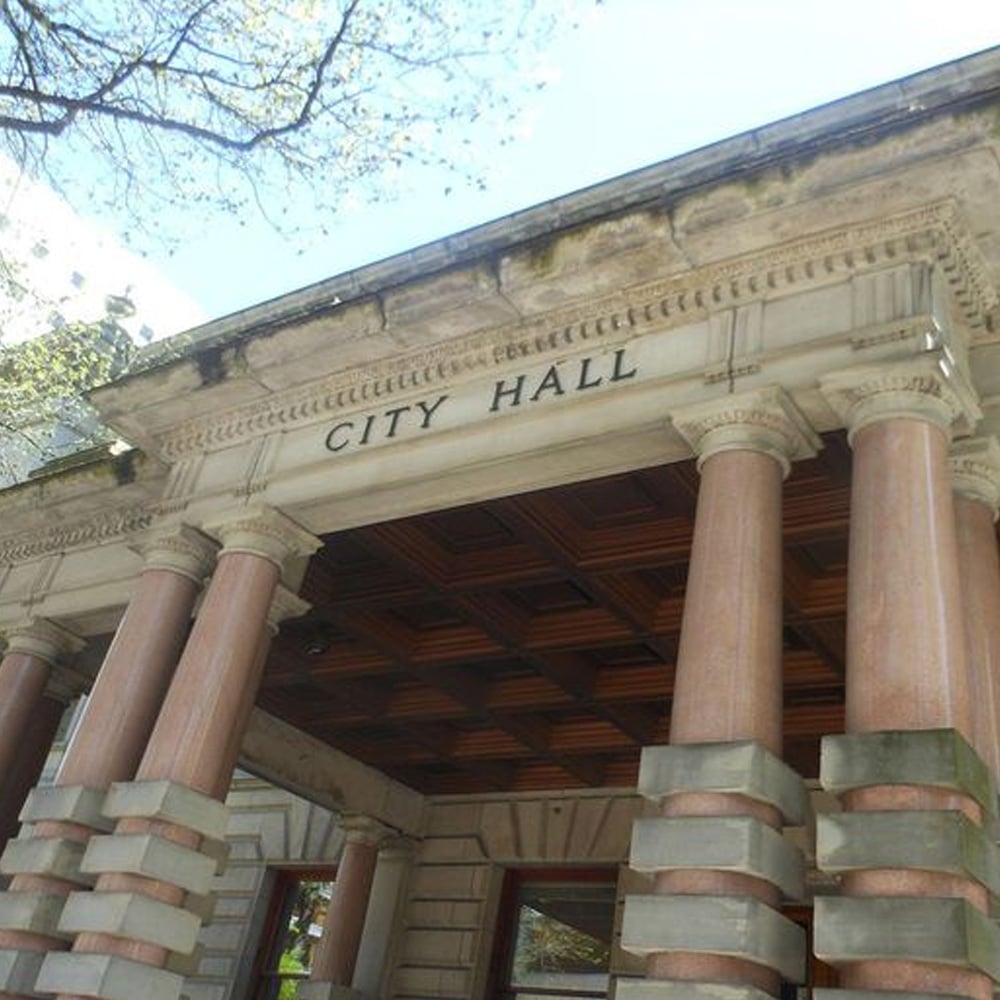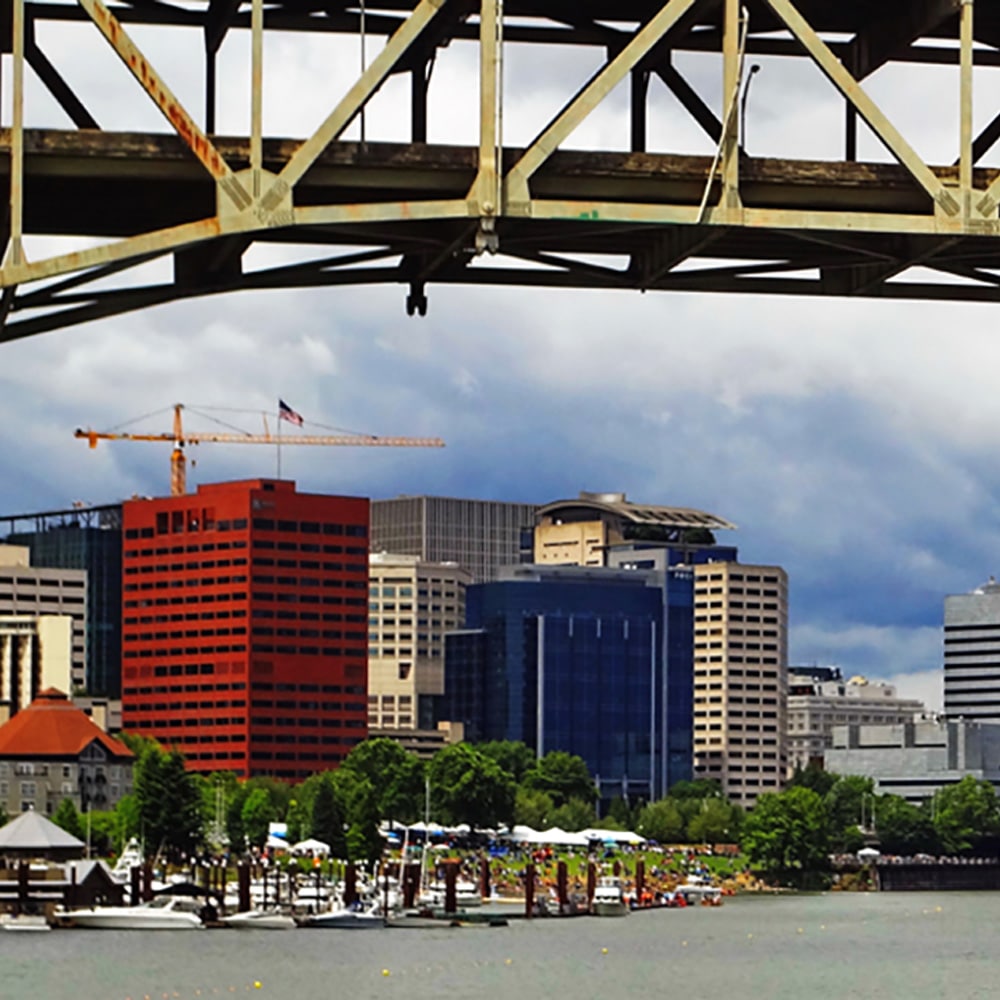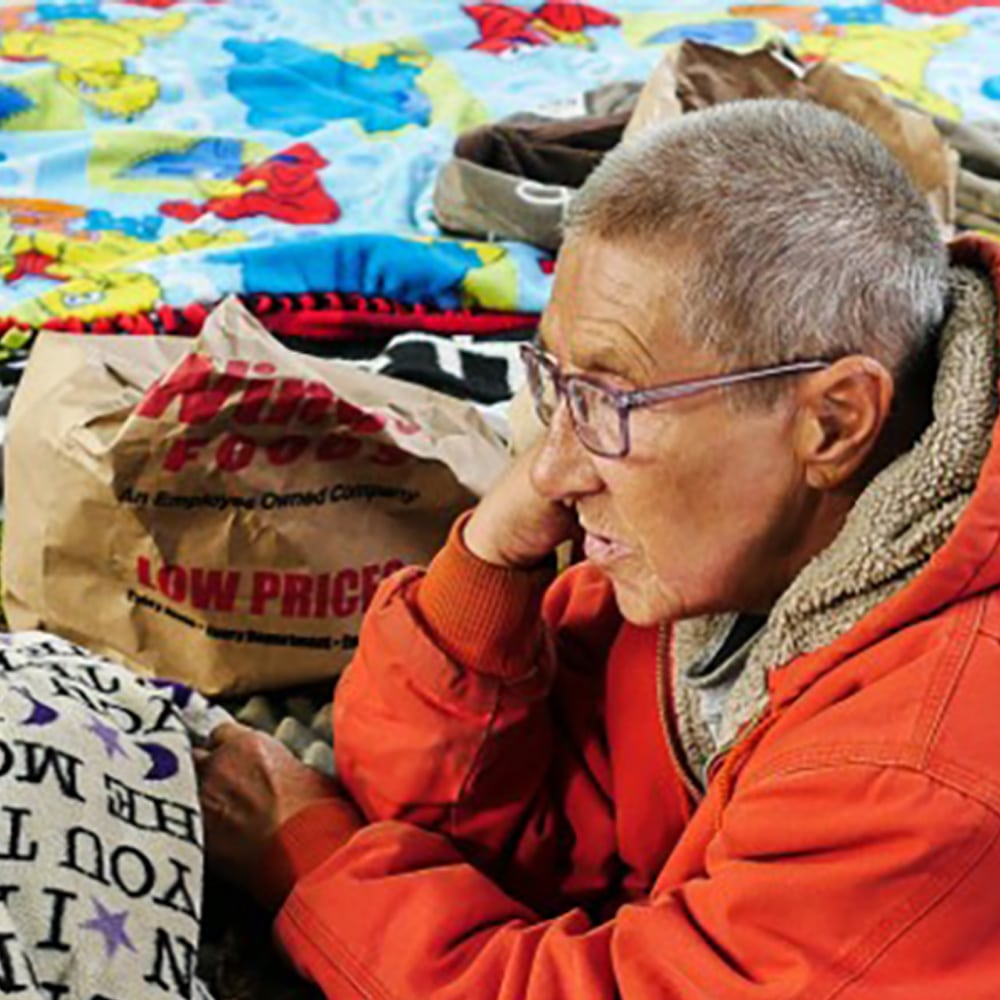Mayor Wheeler’s Office contacted us on April 7, informing us of a temporary Outdoor Emergency Shelter for people living without shelter, or for those living in shelters that cannot provide social distancing guidelines during Portland’s COVID-19 state of emergency. One of the three sites is in Old Town on Block R, this is the fenced vacant block just west of the former Greyhound Station bounded by NW Glisan/Hoyt/6th/Broadway, (NW 6th and Glisan).
A link to the FAQ sheet about this project, sent by the Mayor’s Office is below.
Based on the information from the City, this camp site is to be terminated 21 days after the end of the City of Portland State of Emergency including any further extensions by the Mayor and that all applicants are being explicitly told the shelter arrangement is temporary. This camp will comply with social distancing guidelines
This was proactive communication from the Mayor’s Office. We look forward to their support as we continue in the work on mitigating homelessness in Downtown Portland.
Mayor’s response to Questions Temporary Emergency shelters
Posted April 22/2020
Questions asked by the Oldtown Neighborhood Association’s Board Communication with Mayor’s Wheeler’s office regarding this temporary emergency sheltering plan. This shelter is in the Oldtown Neighborhood Association boundaries. These are their questions with the Mayor’s response.
Outdoor Emergency Shelters
We understand staffing is being provided by JOIN. Is Multnomah County providing resources for JOIN? We are concerned about their ability to provide sufficient staff for the OutdoorEmergency Shelters.
Yes, Multnomah County will expand their contract with JOIN as the provider. JOIN will be hiringnumerous temporary employees.
Help us understand what JOIN’s role is going to look like there and what is their staffing plan andcapacity to staff these camps?
On each site, JOIN will have:
a) 2 Gate Crew Check-In, Decontamination, & Security Staff on 24/7.
b) 1 Sanitation & Safe Eating Coordinator 40 hrs./a week
c) SHARED STAFF across all three sites will be a Training Coordinator (train all staff and leadtrainings with all campers) and Health Coordinator (respond to basic first aid and behavioralhealth
d) There is a large coalition of organizations that will be supporting these places as well such as Street Roots, Sisters of the Road, Free Hot Soup, Trans Housing Coalition, Portland Street Medicine, Coalition for Communities of Color, Ground Score/Trash for Peace, Oregon Harbor of Hope and a few others.
We would like a clear understanding of staffing and management plans for the camp sites. It is imperative to have adequate security and management.
PPB and JOIN will be meeting to develop a safety plan for when and how police should be called and to discuss expectations and management. We will share the Safety and Operations Plan with you when it is finalized.
There has been increased campers on the streets in and around the Old Town neighborhood. Will these campers be re-directed into the Outdoor Emergency Shelters?
There was a request from our social service providers for a location in Old Town. Because of the concerns that people were congregating for food and hygiene services. Unsheltered folks in old town will be engaged from our outreach teams asking for them to apply to complete intake form. Street Roots is one of the physical places where people can submit their intake forms.
We understand that we of the sites will be specified for certain populations. If that is the case,how will this project help to alleviate the campers in Old Town?
While there is a prioritization for culturally specific services, people cannot be denied services if they are not that identity. There are numerous people who identify as LGBTQ+ and BIPOC in Old Town and can be prioritized. We advocate for those who are on the streets in Old Town to be relocated to the Outdoor Emergency Shelters. My understanding is that this is one of the prioritizations for that site though not the sole determination for prioritization.
What is the definition of “the duration of the City of Portland’s COVID-19 state of emergency”?What is temporary? What are the chances that this will ever go away once it is set up?
As written in our site use agreement with JOIN, the permit shall be terminated 21 days after the end ofthe Portland State of Emergency including any further extensions by the Mayor (I do not know when that will end as that is determined by Mayor and Public Health authorities). All applicants are being explicitly told this is temporary and it is written at the top of the intake forms and if chosen will be intheir participation agreement. The Mayor, Commissioner Hardesty and the rest of council are alignedthat these are temporary spaces.
What is the communication strategy with the stakeholders in the affected neighborhoods? We have created an excel spreadsheet of business and neighborhood organizations in the area. Would greatly appreciate if you felt there were additional people we should reach out to.
ATTACHMENT 2: MAYOR WHEELER’S FACT SHEET ON THIS PROJECT AND A BRIEF OVERVIEW OF THE STATUS OF SHELTERING FOR OUR HOMELESS NEIGHBORS DURING THIS COVID 19 EMERGENCY
FAQ Outdoor Emergency Shelters: April 10, 2020
What are the Outdoor Emergency Shelters?
Outdoor Emergency Shelters are temporary tent villages that will provide adults experiencing homelessness access to a supportive environment, as well as regular meals, water, hygiene amenities and restrooms. They will offer people living without shelter a safer and healthier place to stay throughout the duration of the City of Portland’s COVID-19 state of emergency.In accordance with CDC and Public Health guidelines on physical distancing, tents at each sitewill be placed within 12’x12’ spaces, and tents will be uniformly spaced to create at least 10 feetof separation between each tent. Each site will have a fence and a designated point of entry to protect residents’ privacy and tokeep the sites secure. In addition to restrooms and handwashing stations, each site will also offer drinking water, aphone charging station, a cooking area and regular trash service. A shower truck will service allthree sites.
The sites will share a health coordinator who can respond to basic first aid and behavioralhealth calls 24/7. The City of Portland will be providing tents, as well as sleeping bags and cots. Each tent will beon a platform.
Why are they necessary?
Living without shelter is traumatizing and life-shortening even when our community isn’t facing apandemic. That’s why local governments, service providers and advocates work all the time tohelp people into shelter and housing. But during an outbreak like COVID-19, that work is even more urgent. While many people with COVID-19 will have only mild to moderate symptoms and recover without medical intervention, that may be less true for our neighbors experiencinghomelessness. They tend to be older or have more underlying health conditions, both of which put them at higher risk of serious symptoms and potentially fatal infections.
Creating these Outdoor Emergency Shelters — providing places to wash hands, go to thebathroom, and sleep and spend time at safe distances — is another way the community canstep up and limit the spread of this illness among those who are most vulnerable.Because COVID and the need for physical distancing has forced libraries, cafes and daycenters to either close or shorten their hours, limiting access to showers, meals, bathrooms andmore, these sites will also fill an important service gap in the community at the same time as they offer safer places to sleep.
Where will these shelter open?
At this time, the City of Portland has identified three properties, two in the Central Eastside an done in downtown. The east sites are at SE Water and SE Main and at SE Water and SE Salmon. The west site is at NW Broadway and NW Hoyt.
What’s the timeline for creating and then opening these sites?
The goal is to stagger the opening of all three sites as soon as late next week. Some construction workmay start by the end of this week.
Who will these shelters serve?
These sites will serve adults, either singles or people in partnerships, currently living without shelter in Multnomah County. Families or people younger than 18 won’t be able to access thesesites.People will also be able to bring their pets.
How many people will each site serve?
Each site will host 45 tents. Because some tents will host partners, the number of people served at each site may be larger than 45.
What is the intake process for residents?
Spaces will be available by reservation only. JOIN is collaborating with community partners for the intake processes.
Will walk-in or drop-off access be accommodated?
No. These sites won’t be able to accommodate people who walk up seeking a space or anyonewho might be dropped off without a reservation.
Will guests be allowed to use their own tents and sleeping bags? Will they be able tostore belongings?
No. To maximize use of space, the City of Portland will be providing new tents and sleeping bags for all guests. Guests at each site will also be able to store their belongings, including any tents or bedding they may have been using before coming to the Outdoor Emergency Shelter.
How will these sites be organized to support physical distancing as well as hygiene and sanitization procedures?
Public health guidance: Each site will adhere to guidance from the U.S. Centers for Disease Control and Prevention and Multnomah County Public Health.
Strict cleaning and personal hygiene protocols: Staff will regularly disinfect all communal property and shared spaces. Disinfectants and handwashing stations will be provided at the gate. Handwashing stations will also be provided next to portable toilets. Staff will also educate people about safe handwashing and sanitization practices, andexplain why hygiene and sanitization are important for everyone’s health and safety.
Sharing information about symptoms: Anyone who develops respiratory symptoms must report them soon as they are aware of them. People with symptoms will bescreened and referred to medical motel shelters as needed, just like someone who develops symptoms in an indoor shelter.
Visitor policy: Like at other shelters in the community, guests will not be able to invite visitors into the space. Guests will be able to come and go from the sites as they need, just like at other shelters, but they will be highly encouraged to practice safe physical distancing at all times.
Who is responsible for ensuring safety and providing services at these sites?
JOIN is working with the City of Portland and the Joint Office of Homeless Services to provide tents and sleeping bags, and access to handwashing stations, toilets, trash service, showers, nutritious meals, and mental and physical health services. JOIN and the Portland Police Bureau are working together to create a collaborative public safety plan.
JOIN has created an organizing committee, which currently includes organizers and workers from JOIN, Afro Village, Coalition for Communities of Color, Dignity Village, Gather, Make Shelter, Ground Score / Trash for Peace, Hygiene4All, Portland Street Medicine, Portland People’s Outreach Project, Right 2 Dream Too, Street Roots, Sisters of the Road, The Equi Institute, and the PDX Trans Housing Coalition.
OTHER FACTS:
Here’s a basic rundown of the efforts that the Joint Office and the County have made to create social distancing within our existing shelter system.
We opened up the Oregon Convention Center and three Portland Parks & Recreation Community Centers: Charles Jordan, East Portland, and now Mt. Scott (opened today). This has allowed us to resume normal intake into the shelter system.
In addition, for individuals in the shelter system that exhibit COVID-like symptoms, we are using hotels and motels to quarantine those individuals. They are getting tested for COVID at these sites and being monitored in the event that the symptoms require more serious medical care.

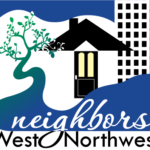
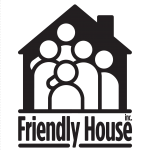
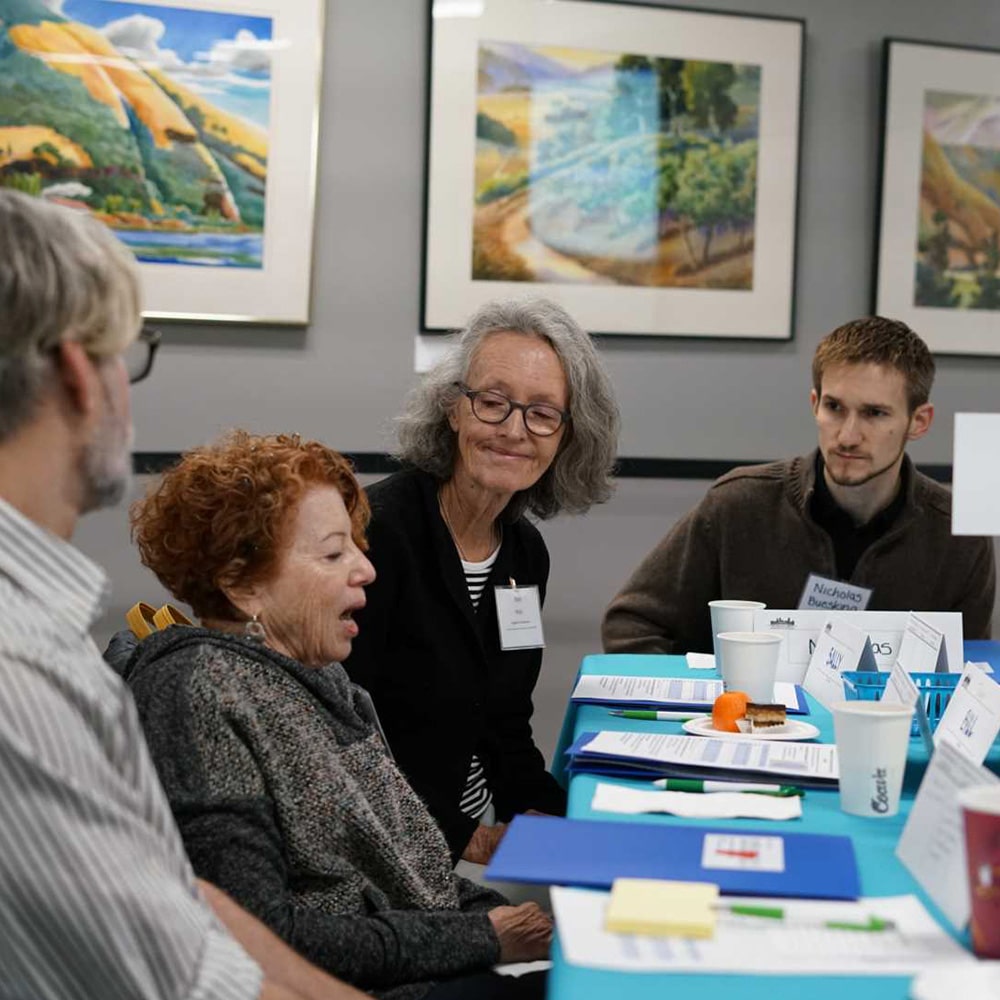
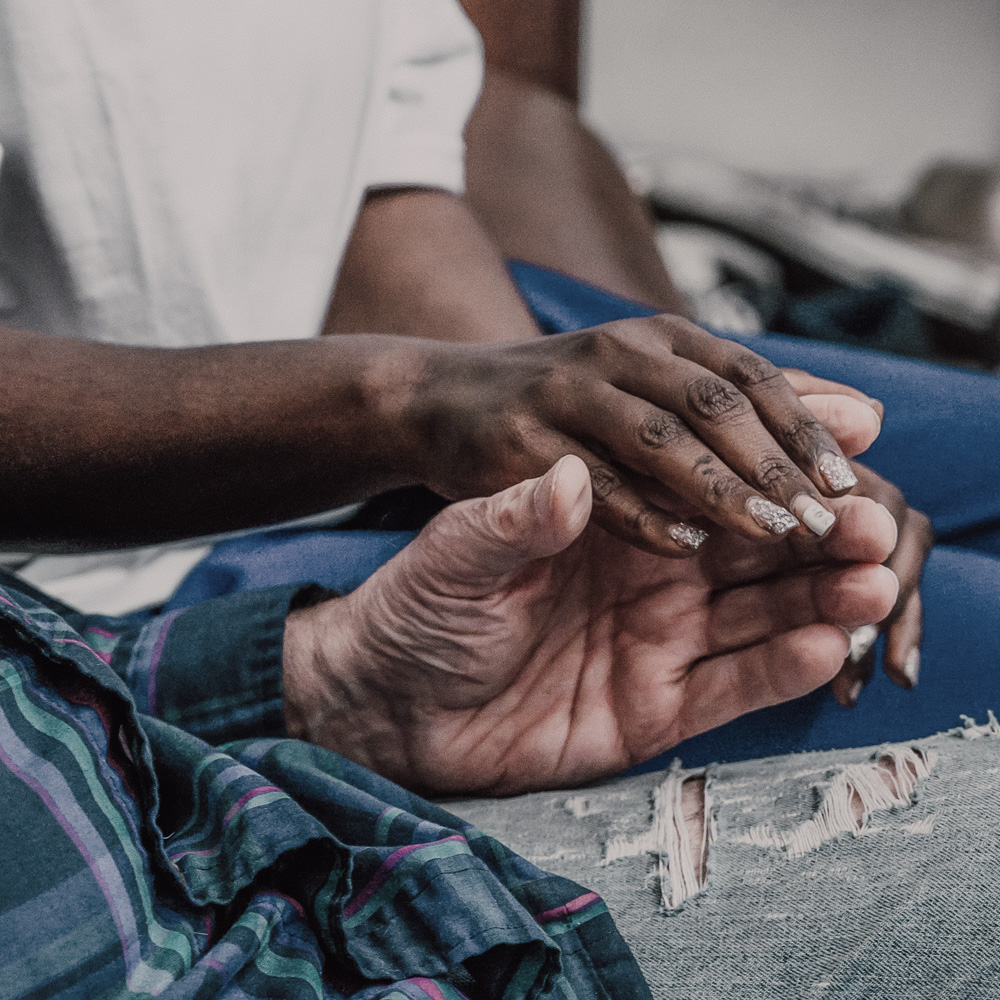


 Executive Status is defined as representing the DNA Board of Directors on its behalf. No board, committee or individual member is authorized to speak on behalf of, or to represent the DNA without specific approval of the DNA Board of Directors.
Executive Status is defined as representing the DNA Board of Directors on its behalf. No board, committee or individual member is authorized to speak on behalf of, or to represent the DNA without specific approval of the DNA Board of Directors.


